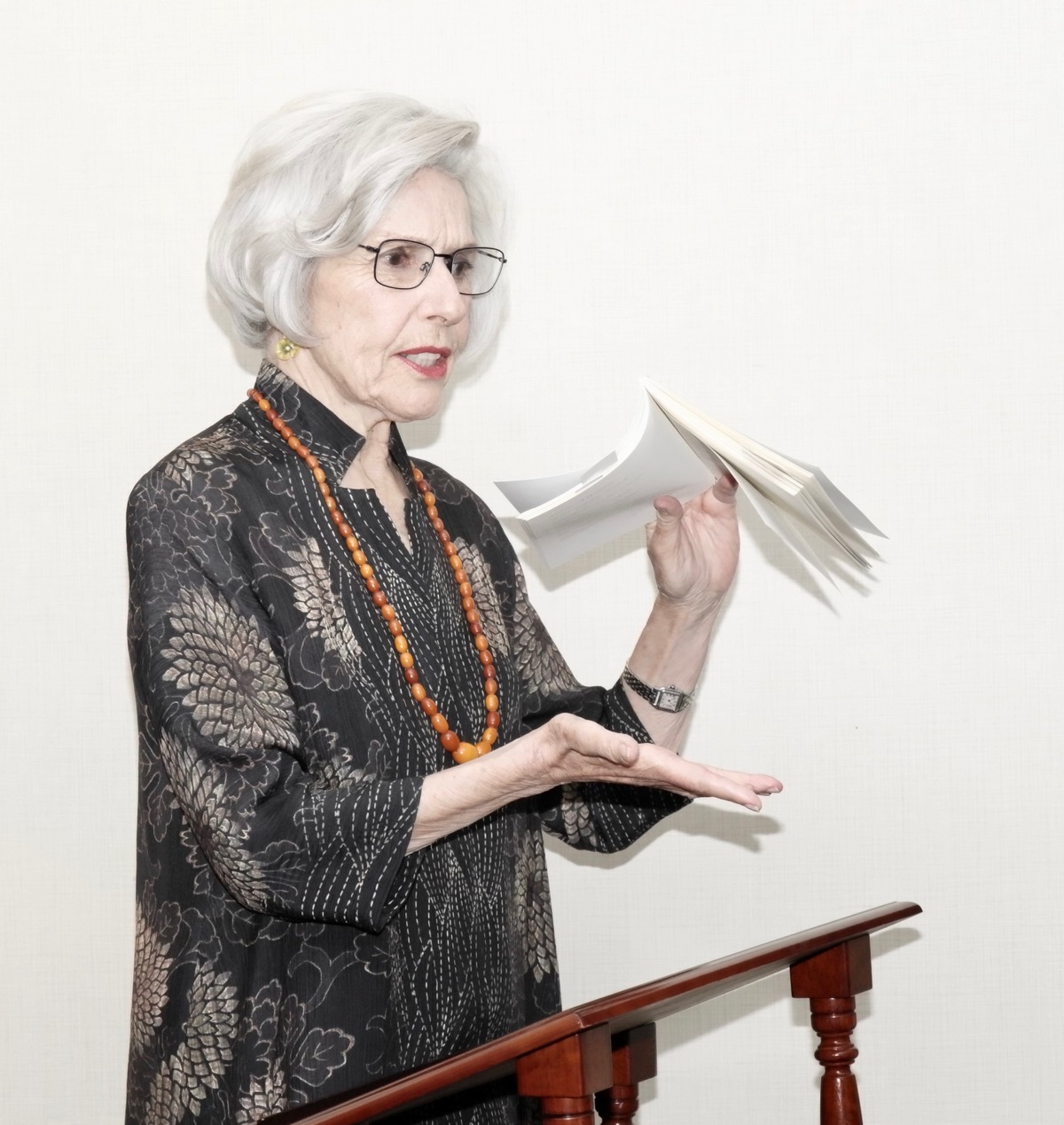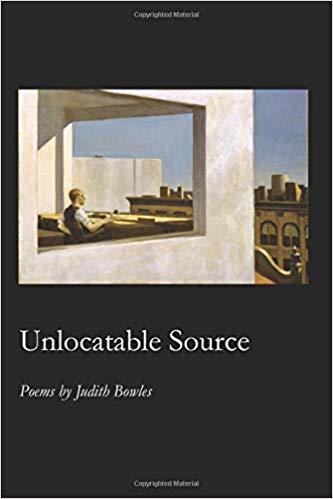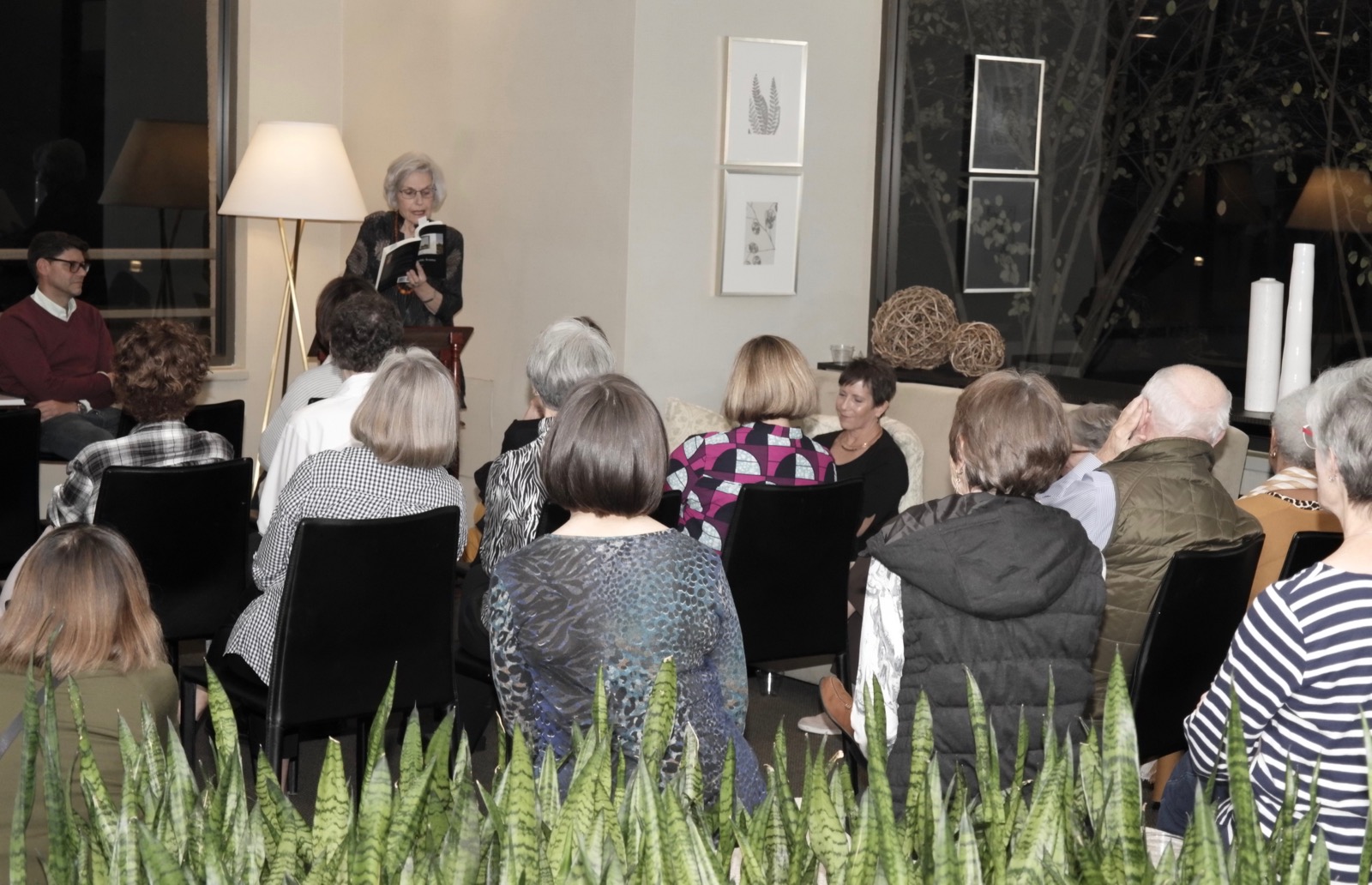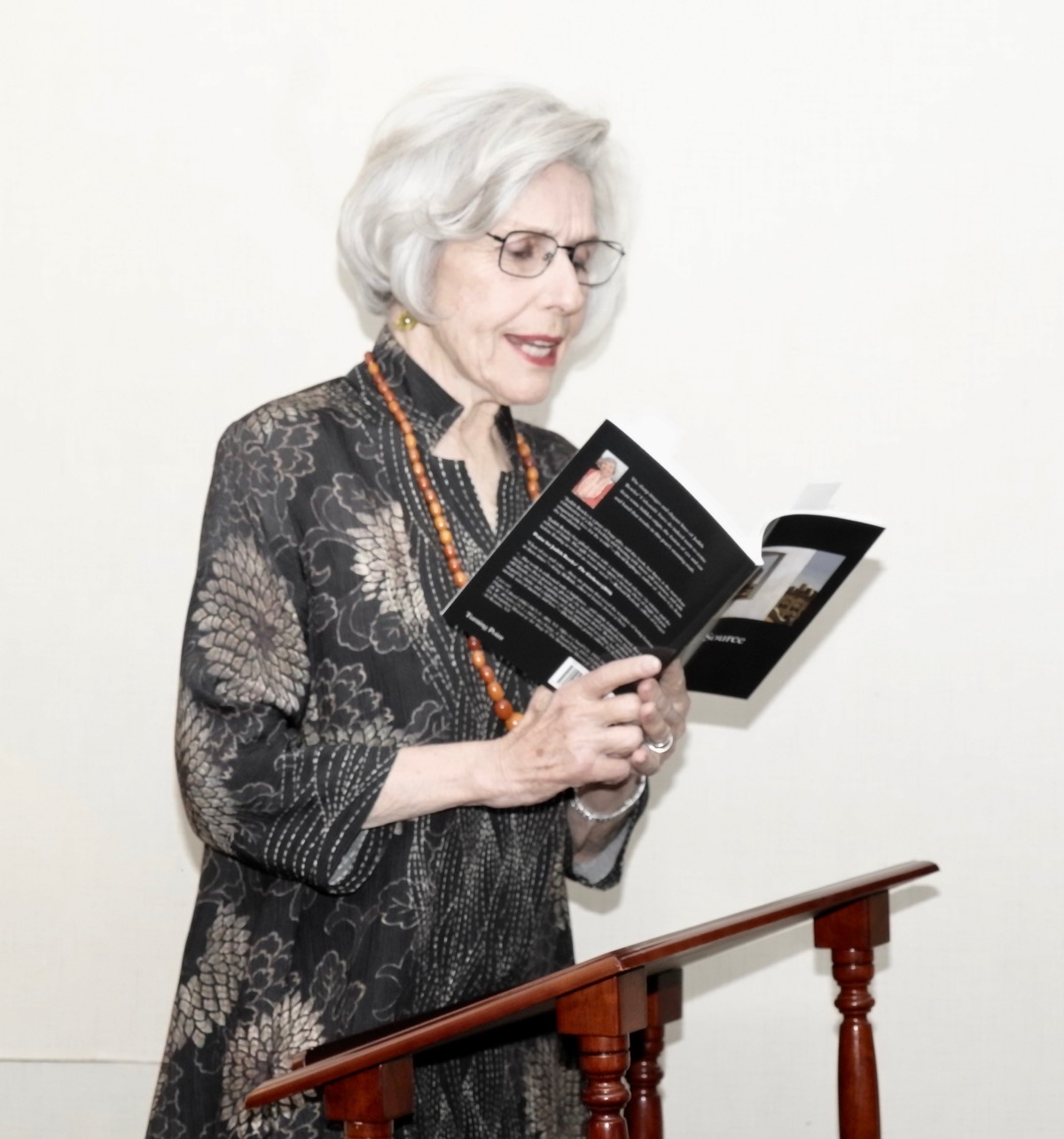Poet in Residence Judith Bowles

We share a first name diminutized willy-nilly, and a backyard in the woods. Before I learned she is a poet with a brand new book, I knew her as the lovely master gardener who gifts my windows with their lush view.

Published in August, Unlocatable Source is Judith Bowles’ second volume. As she did with The Gatherer, Bowles selected an Edward Hopper painting to illustrate her work. Friend and teacher David Keplinger explains, "I have long felt the poetry of Judith Bowles was the counterpoint to Hopper. In her new collection, we find the same lone figures staring out of windows and gazing from front porches, narrated by a poet whose influences could be traced in a lineage from Merwin and Strand, to Stevens and the Symbolists of the 19th century."
Following a recent reading, I had a chance to sit down with the poet, to learn more about how she leads us with grace and clarity through those seminal moments of her life, turning the isolation she felt as a child outward. To friendships, acting, the theater, family, a career teaching English. Then, armed with an MFA in short fiction, to poetry, a medium she says, “makes me feel witnessed.” And, “it’s also taught me how hard it is to learn about what matters to me.”

About her parents, from:
The Neurosurgeon Teaches
My father taught like someone who remembered
not knowing. This had its comforts.
His efforts to be with us in the dark.
He handled brains in his hands.
Mother held babies like that.
About the loss of hearing, from:
White Morning Light
Are there still people
who knew us as as we once were? Even at night
my good ear hears light. My deaf ear still waits
for the window to open.
About empathy:
My Father Explains
A blind man came for dinner
in our house. My father described
the plate that sat before him
as if it were a clock.
Chicken would be at 3, potatoes
at 6, peas at 9. The man shut his eyes
and smiled at a lesson so clearly stated
that you would almost have to
be blind to imagine.
I wondered when the man shut his eyes was he picturing
my father blind
to give himself company
in the world where he lived.
I shut my eyes and so did my brother
and we tried to eat without seeing.

For her daughters:
Santa Barbara Morning
All crowded today
like an overgrown meadow
alive with color,
with swaying, with sand.
It makes a case for the heart
to open its fist and receive
like they do, the dolphins,
now lifting, wheels turning
their rhythm of breath.
The send and receive
in equal measure.
Sound is their light
that beams through the water,
meets matter that’s dense,
copies it home to the brain —
revising, moment
to moment, their place
to soft constellation.
And this, to be published soon, so sadly right for these times:
All In
In the 70’s things were so good
we could laugh at bigotry
as if it were just an act
it was Archie Bunker representing
an endless joke which everyone got
but him and this made the gag richer
and deeper he smoked a cigar
when he was sure the cliché
he believed was true puffed it past
all possibility and wailed up his eyes
at the ignorance of Edith of Gloria of Meathead
and you may remember how we laughed
we were all in on the joke and it was a good one
*/
that could never come true
*/ */ */





